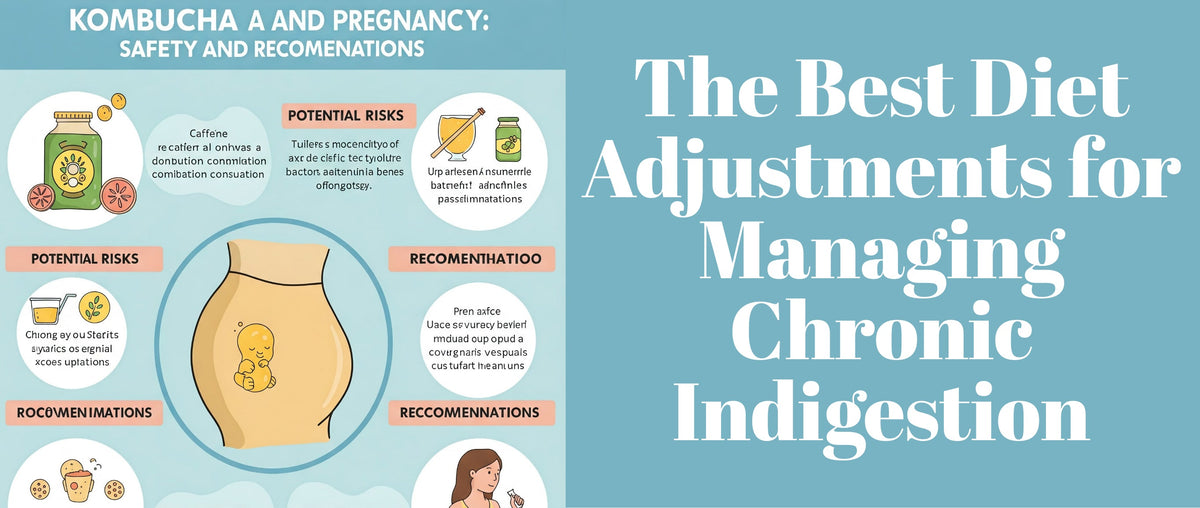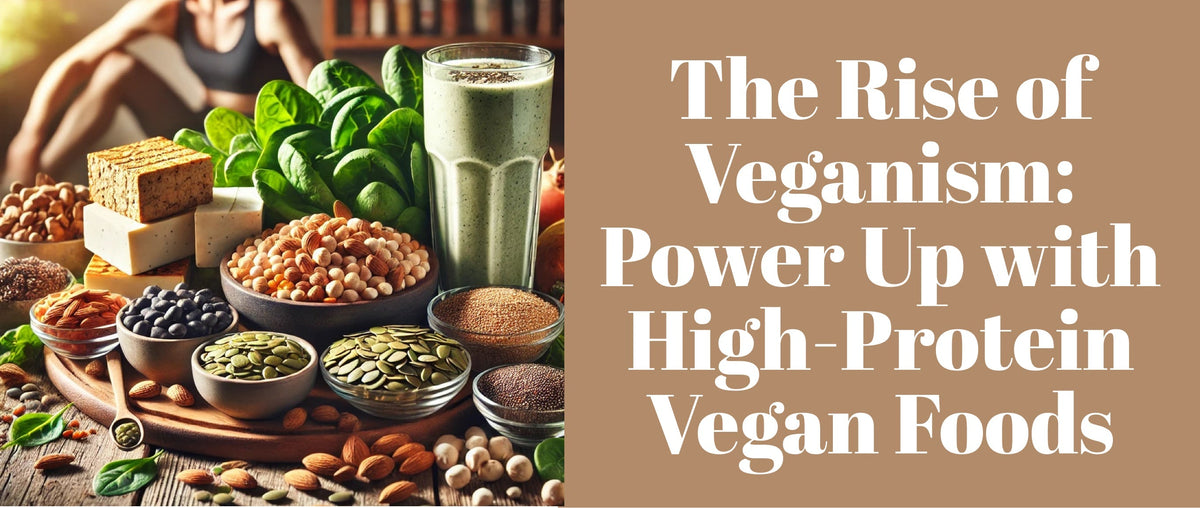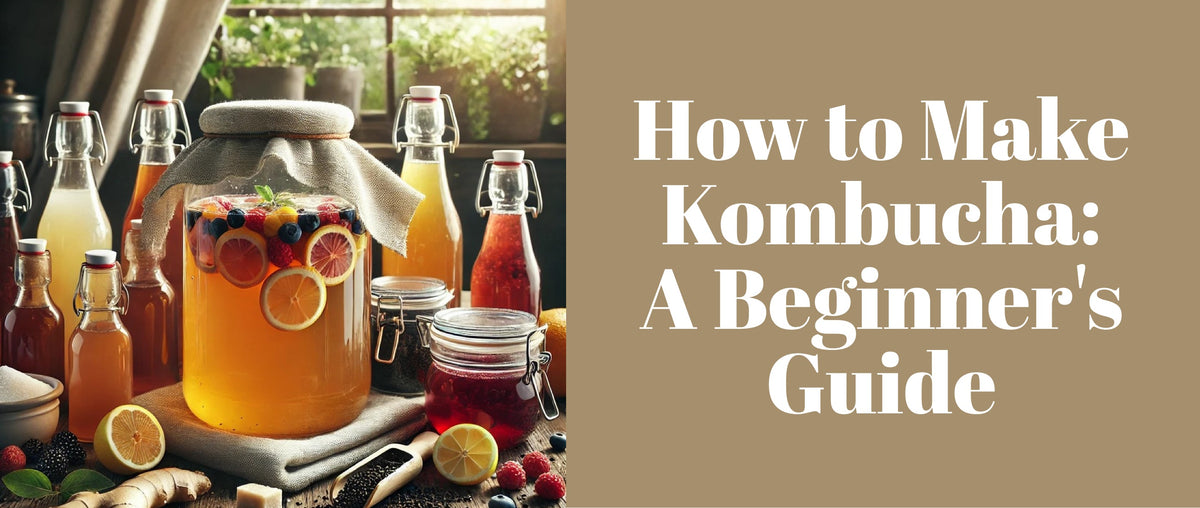Kombucha and Pregnancy: Safety and Recommendations
Kombucha, a fermented tea known for its probiotic benefits, has gained immense popularity as a healthy drink. Many people incorporate it into their vegan diet as a gut-friendly beverage. However, for pregnant women, questions arise regarding its safety, potential risks, and whether it is advisable to consume it during pregnancy.
While kombucha is often compared to other fermented drinks like apple cider vinegar drink, its alcohol content, caffeine, and risk of bacterial contamination make it a controversial choice for expectant mothers.
In this guide, we’ll explore whether kombucha is safe during pregnancy, expert recommendations, and alternative options that provide similar health benefits.
Key Takeaways
- Most health professionals recommend avoiding kombucha during pregnancy.
- If consumed, limit portions and choose pasteurized versions.
- Safer alternatives include oat milk, herbal teas, and plant-based probiotic drinks.
- Consult your doctor before adding kombucha or any new fermented drinks to your pregnancy diet.
If you’re looking for gut-friendly, pregnancy-safe beverages, vegan items like apple cider vinegar drink, oat milk, and dairy-free smoothies can be excellent choices.
What is Kombucha?
Kombucha is a fermented tea made from black or green tea, sugar, and a SCOBY (Symbiotic Culture of Bacteria and Yeast). This fermentation process produces probiotics, organic acids, and a small amount of alcohol.
Key Nutrients in Kombucha
| Nutrient | Health Benefits |
|---|---|
| Probiotics | Supports gut health & digestion |
| Antioxidants | Reduces inflammation |
| Organic acids | Aids detoxification |
| Caffeine | Provides a mild energy boost |
| Alcohol | Present in small amounts due to fermentation |
Also Read
Risks of Drinking Kombucha During Pregnancy
Although kombucha is packed with probiotics, there are several concerns when consuming it during pregnancy.
1. Alcohol Content
One of the main reasons kombucha is discouraged for pregnant women is its alcohol content.
- Store-bought kombucha usually contains 0.5% alcohol or less.
- Homemade kombucha can contain higher alcohol levels (up to 3%), making it riskier.
Why it’s a concern:
- Even small amounts of alcohol can affect fetal development.
- The FDA does not regulate homemade kombucha, increasing the risk of excess alcohol exposure.
2. Caffeine Content
Since kombucha is made from black or green tea, it contains caffeine.
- Pregnant women are advised to limit caffeine intake to 200 mg per day.
- Some kombucha brands contain 10–50 mg of caffeine per serving.
Too much caffeine can cause:
- Increased heart rate in the baby.
- Risk of low birth weight and complications.
3. Risk of Bacterial Contamination
Kombucha is an unpasteurized drink, meaning it contains live bacteria. While these bacteria are generally beneficial, they can pose a risk to pregnant women.
- Unpasteurized products may contain harmful bacteria like Listeria, which can lead to miscarriage or preterm labor.
- Homebrewed kombucha carries an even higher risk of contamination due to improper fermentation.
Safe Alternatives to Kombucha for Pregnant Women
If you’re craving a probiotic-rich drink but want to avoid kombucha, consider these pregnancy-safe options:
| Alternative Drink | Why It’s Safer |
|---|---|
| Probiotic-rich oat milk | A great dairy-free source of probiotics |
| Plant-based kefir | Offers gut benefits without alcohol risks |
| Apple Cider Vinegar Drink | Provides similar acidity without fermentation risks |
| Herbal teas | Caffeine-free and soothing for digestion |
For pregnant women following a vegan diet, oat milk and plant-based kefir are excellent substitutes for kombucha while still promoting gut health.
Expert Opinions on Kombucha and Pregnancy
While kombucha is a popular fermented drink, medical professionals and nutrition experts often advise caution for pregnant women.
What Do Health Organizations Say?
| Organization | Recommendation |
|---|---|
| American Pregnancy Association | Recommends avoiding unpasteurized kombucha due to alcohol & bacterial risks. |
| Centers for Disease Control (CDC) | Warns against unpasteurized beverages during pregnancy. |
| FDA (Food & Drug Administration) | Advises against homemade kombucha due to inconsistent fermentation. |
Most health authorities agree that kombucha is not an essential beverage and has potential risks that outweigh benefits during pregnancy.
Should You Drink Kombucha While Pregnant?
1. Choose Pasteurized Kombucha
- Some brands offer pasteurized kombucha, which eliminates harmful bacteria.
- However, pasteurization also removes beneficial probiotics, reducing its health benefits.
2. Limit Your Intake
- If your healthcare provider approves kombucha, limit it to small portions (less than 4 oz per serving).
- Ensure the kombucha has low caffeine and alcohol content.
3. Monitor Your Body’s Reaction
- If you experience bloating, nausea, or dizziness, stop drinking kombucha immediately.
- Some people have histamine reactions to fermented foods, which can cause headaches or digestive issues.
4. Consult Your Doctor
Every pregnancy is different, and a medical professional can provide personalized advice.
Alternatives to Kombucha for Pregnant Women
If you’re looking for Healthy Drinks that provide similar benefits to kombucha, try these safe alternatives:
1. Probiotic-Rich Oat Milk
A dairy-free alternative that supports gut health. Ideal for those following a vegan diet or looking for cholesterol-free foods.
2. Apple Cider Vinegar Drink
Has gut-friendly enzymes without the alcohol risks of kombucha. Can be mixed with honey, lemon, and ginger for a refreshing drink.
3. Herbal Teas
Chamomile, peppermint, and ginger teas support digestion and relaxation. Caffeine-free and safe for pregnancy.
4. Plant-Based Yogurt Smoothies
Made with vegan products like oat milk or cashew butter. Contains probiotics for gut health and essential nutrients.
5. Fresh Fruit Juices
Blends like carrot-apple-ginger or beet-pomegranate support immune health. Naturally packed with vitamins, antioxidants, and hydration.
Kombucha and a vegan diet: What You Should Know
For individuals following a vegan diet, Kombucha is often consumed as part of a probiotic-rich lifestyle. However, if you’re pregnant and avoiding Kombucha, consider other plant-based probiotic foods, such as:
- Fermented coconut yogurt
- Kimchi (mild versions for pregnancy)
- Sauerkraut
- Miso soup (low-sodium versions)
For those looking to incorporate dairy-free cheese options, plant-based cheese like vegan cheese, fresh mozzarella, and Unprocessed Cheese are excellent additions to a nutrient-rich vegan pregnancy diet.
Healthy Pregnancy Snacks to Pair with Probiotic Drinks
Looking for nutrient-rich snacks to go with your Healthy Drinks? Try these:
| Snack | Nutritional Benefits |
|---|---|
| Whole-grain crackers with vegan butter | Provides fiber & healthy fats |
| Plant-based cheese & fruit | Good for calcium & digestion |
| Oatmeal with Cashew Butter | Rich in protein & probiotics |
| Chia pudding with almond milk | Loaded with Omega-3s & fiber |
These snacks not only support digestion but also offer pregnancy-safe nutrients without the risks of Kombucha.
Conclusion
Kombucha is often praised as a healthy drink, but its alcohol content, caffeine, and potential for bacterial contamination make it a questionable choice for pregnancy. Health experts generally recommend avoiding Kombucha during pregnancy to minimize risks.
However, there are many safe alternatives to Kombucha, such as probiotic-rich oat milk, Apple Cider Vinegar Drink, and plant-based kefir. These Healthy Drinks provide similar benefits without the risks.
If you're pregnant and considering Kombucha, it’s best to consult with your doctor first. Your baby’s health comes first, and there are plenty of other delicious, nutritious options available!
Do you enjoy vegan food? We have a list of vegan restaurants in India to help you find delicious options in your area!












